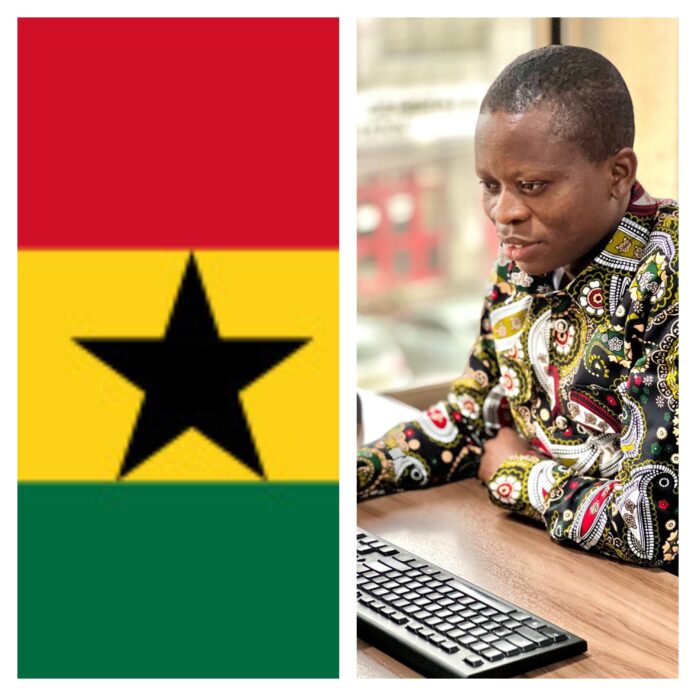As Ghana approaches its 2024 general elections, the nation stands at a critical juncture in its democratic journey.
Known for its stability in a region often fraught with political turmoil, Ghana has long been a beacon of peace and democratic maturity in West Africa.
However, as Election Day draws near, there is a growing sense of unease, with questions about whether peace—Ghana’s most cherished asset—will remain intact.
Ghana’s democratic reputation has been built on peaceful electoral transitions, even when results were contested. Since the first multi-party elections in 1992, Ghana has witnessed four peaceful transfers of power, including a historic transition in 2000, when the opposition New Patriotic Party (NPP) defeated the incumbent National Democratic Congress (NDC).
That shift marked a milestone for democracy in Africa. But as the 2024 elections loom, the big question remains: can Ghana maintain its record of peaceful elections?
Historically, the country has demonstrated resilience in handling election disputes, with the Judiciary playing a crucial role in resolving conflicts, and civil society providing oversight.
However, the political landscape in Ghana today is markedly different from years past. The environment is increasingly polarized, and the stakes seem higher than ever.
In this tense atmosphere, there are genuine concerns about the erosion of trust in the political process and whether this could jeopardize Ghana’s hard-won peace. In 2024, Ghana faces a deeply divided electorate.
The two major political parties, the NPP and the NDC, continue to battle for dominance, and the rivalry between the two has intensified. Allegations of corruption, poor governance, economic hardship, and rising social inequalities have fueled political discontent across the country.
Each election cycle brings its own set of challenges, but this time, the economic pressures seem particularly severe. Ghana is grappling with an economic crisis, inflation is soaring, and many Ghanaians feel let down by the political class.
This sense of disenchantment, combined with increasing tribal and regional divisions, is heightening the potential for violence and unrest.
Additionally, the role of social media in shaping political narratives has taken on a new dimension.
The rapid spread of misinformation, cyber-attacks, and the rise of online hate speech could inflame existing tensions, making the electoral process even more volatile. Political leaders must ensure that their supporters don’t fall prey to inflammatory rhetoric that undermines national unity.
Peace isn’t simply the absence of violence; it’s the presence of inclusivity, fairness, and trust. As Ghanaians prepare to cast their ballots, it is crucial that political leaders and civil society organizations continue to emphasize the importance of maintaining peace. Ghana’s peace hinges on the goodwill of political players who respect the rule of law and the democratic process.
In this respect, Ghana’s Electoral Commission (EC) has a pivotal role to play. Its independence, transparency, and ability to manage elections credibly remain the foundation of peaceful elections. Any perception of bias or manipulation risks not only the integrity of the election but the very peace that has defined the nation for decades.
Equally important is the responsibility of political parties and their supporters to avoid violence, provocation, and inflammatory rhetoric. Leaders must set the tone for their supporters by committing to non-violence, respecting election results, and upholding democratic values.
Ghana’s peace cannot be taken for granted, and it is imperative that every individual—whether a voter, political leader, or security personnel—understands the weight of their actions in the lead-up to the election. While political leaders play a significant part, peace is a collective responsibility. It requires the active participation of every Ghanaian citizen.
Civil society groups, community leaders, and the media must continue their work of educating the public on the importance of peace during elections. This includes encouraging citizens to stay calm and united regardless of the outcome and promoting a culture of tolerance and respect for diversity.
Organizations like the National Peace Council and other non-governmental organizations (NGOs) have been doing commendable work in promoting peace. Their outreach programs, aimed at communities across the country, encourage dialogue and conflict resolution at the grassroots level. These efforts need to be strengthened in the coming months.
One of the most effective ways to preserve peace is through building a culture of dialogue, mutual respect, and understanding across party lines. Strong institutions, including an independent judiciary, free media, and effective law enforcement, are also key to ensuring peace during the 2024 elections. The police and security agencies must be prepared to handle any form of electoral violence with professionalism and neutrality. Excessive force or partisanship could escalate tensions and undermine public trust in the electoral process.
Equally important is the role of the media in ensuring a peaceful election. While the media serves as the fourth estate, it also has a responsibility to report accurately and responsibly. Sensationalism, false reporting, and partisan journalism can stoke unrest and create an environment of fear and mistrust.
The media must act as a unifying force, providing balanced coverage and promoting peaceful engagement during the election period.
As we head toward the 2024 elections, one thing is clear: peace is not guaranteed, and it must be actively preserved. Ghanaians must not take peace for granted but rather, work together to safeguard it.
This means rejecting the politics of division, eschewing violence, and embracing the core values that have made Ghana a model of democracy in Africa. It is imperative that all Ghanaians—regardless of political affiliation—remember that their actions in the coming months will define the nation’s future.
The stakes are high, but so is the potential for a peaceful and prosperous future. Let us heed the call for peace, now more than ever.
Ghana’s peace is our collective responsibility. If we hold steadfast to unity, respect, and fairness, the 2024 elections can be another testament to our nation’s unwavering commitment to democracy.
Peace, where are you? Peace is here, if we choose to keep it.

